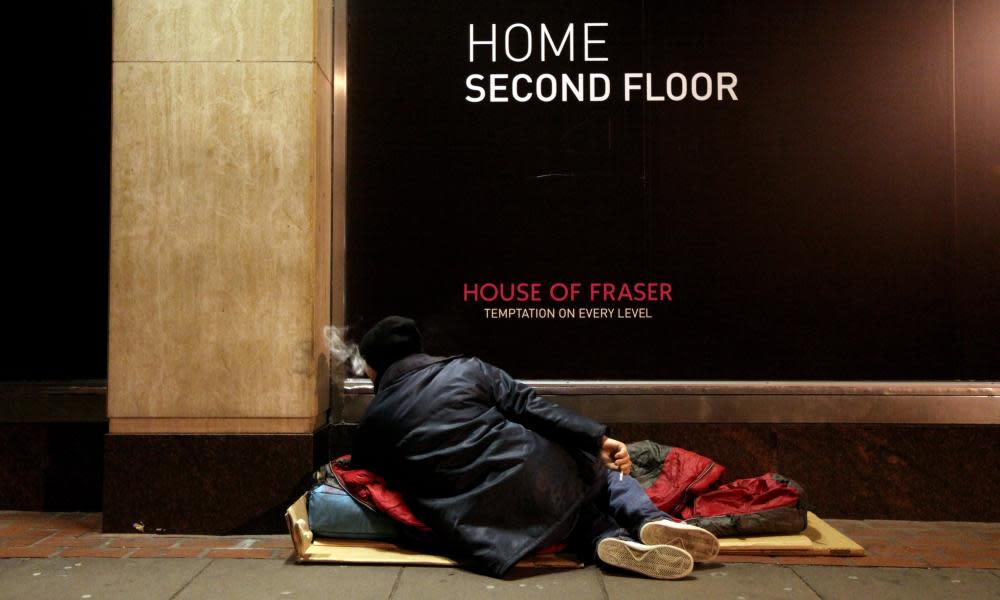The Guardian view on deporting rough sleepers: rights and wrongs | Editorial

The high court has robustly rejected the Home Office case that citizens of the EU and the European Economic Area were abusing their right to be in the UK if they were sleeping rough. The government has finally been forced to acknowledge that it is not illegal to be too poor to pay for a roof over your head, and it is illegal to return such people to their country of origin.
This policy of picking up, detaining and then “sending home” EU citizens belongs entirely to Theresa May. Five years ago, when she was home secretary and Downing Street only a glint in her eye, she announced that she intended to create a “hostile environment” for people living in the UK illegally. Critics warned that it would turn landlords, GPs and teachers into immigration enforcement officers; the Home Office duly began hoovering up information from interactions between migrant workers and the state. Three years ago, jobseekers from EU and EEA countries were banned from claiming housing benefit, precipitating hundreds of low-paid workers into insecure housing and some on to the street. Soon, the idea that rough sleeping was an abuse of the right of free movement was being tested on the ground. In Operation Adoze, launched in November 2015, 127 rough sleepers from EEA countries were detained and removed in eight weeks. It became part of the official administrative removals policy; charities that work with street sleepers, like St Mungo’s and ThamesReach, were recruited to pass information about their clients to the Home Office, leading to their removal.
This policy was tailored to empty out the meaning of the fundamental right of free movement enjoyed by all EU and EEA citizens as citizens of a common European home. Even the Home Office, it seems, knew the courts would not accept its argument, settling immigration cases that looked as if they might go to appeal, and even producing a new policy on the very morning of the hearing of the case finally decided on Thursday in the high court . It will not appeal. So ends a disgraceful policy of rounding up EU citizens here entirely lawfully, often working, detaining them without access to justice and then removing them, simply because they could not afford a bed for the night. How shameful. But the government is counting on Brexit to remove such protection.

 Yahoo News
Yahoo News 
